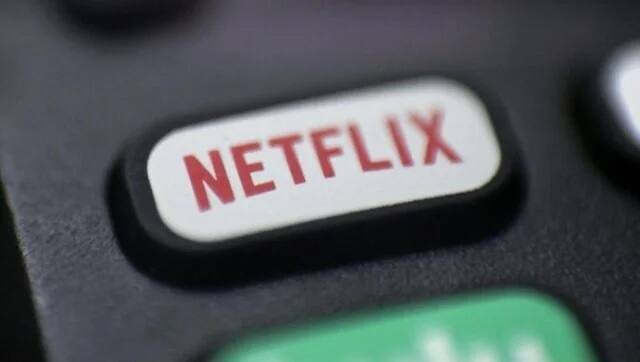Amidst the coronavirus pandemic and with the 2021 Tokyo Olympics soon to be underway, all might not be smooth sailing for Anurag Thakur, who took charge of the Information and Broadcasting (I&B) Ministry along with the Sports and Youth Affairs Ministry in the cabinet reshuffle. Recent events including the uproar over certain content streaming on digital platforms and the criticism of the proposed changes to regulate film censorship, certification, and piracy, coupled with the shutdown of theatres due to the changing social distancing norms brought on by the pandemic, could pose as a series of challenges for the new minister. Here is a look at some of these issues that the new I&B minister will have to tackle as he takes office: Post pandemic revival of the film exhibition sector – multiplexes and single screens [caption id=“attachment_9791631” align=“alignnone” width=“640”]  Cinema halls continue to suffer immense losses as they remain shut owing to the coronavirus pandemic. Representational image.[/caption]
- A year into the pandemic, most multiplexes and single screen theatres in major cities of India, including Kolkata, Mumbai, and Chennai among others continue to remain indefinitely shut, leading to massive losses for theatre owners. In fact, in 2020, the Multiplex Association of India cited an estimated loss of Rs 9,000 crore six months after the first coronavirus induced lockdown came into effect.
- In 2021, prior to the second lockdown , the association issued a statement suggesting that such measures would negatively impact the cinema industry as they would deter movie-goers from visiting theatres and lead to further losses for owners. Major single screen theatres like Navina, Menoka, Jaya, and Ajanta in Kolkata remain closed to reduce the spread of the COVID-19 virus. Satadeep Saha, co-owner of Ajanta cinema, rued, “We were chugging on despite poor footfall since October last year when the cinema halls reopened after lockdown. The surge in COVID-19 cases is another blow.”
- Following this turn of events, the Eastern India Motion Picture Association (EIMPA) appealed to West Bengal Chief Minister Mamata Banerjee in June 2021 to come out with a relief package that would aid 'gasping' cinema halls, and called for an exemption of tax and duties for the theatres. The association stated that the brief respite from the shutdown had failed to attract audiences to cinema halls, making it increasingly difficult for theatre owners to generate revenue and pay salary to their employees. Some theatres have permanently shut shop, the EIMPA said.
- In Tamil Nadu too, the tiff between Tamil film producers and the theatre owners last year drew attention to the decision of filmmakers to turn to OTT platforms during the pandemic and forgo theatrical releases as cinema halls stayed shut. This further threatened the survival of the still operational theatres so much so that in July 2021, the Telangana State Film Chamber of Commerce requested Telugu film industry producers to avoid OTT releases and wait for theatres to reopen.
Cinematograph (Amendment) Bill, 2021 [caption id=“attachment_9791621” align=“alignnone” width=“640”]  Representational image via The Associated Press[/caption]
- The draft of the new bill to amend the Cinematograph Act, 1952 by the Centre proposes to penalise film piracy with a fine and a jail term, introduce age-based certification, and allow the government to order recertification of already certified films following the receipt of complaints.
- These proposed amendments have been heavily criticised by the film industry, which has suggested that such changes would render filmmakers “powerless at the hands of the state and more vulnerable to threats, vandalism, and intimidation of mob censors,” as per a letter signed by 300 film personalities in July. This proposal came two weeks after the government’s decision to do away with the Film Certification Appellate Tribunal (FCAT), a statutory body that would listen to grievances of filmmakers unhappy with the cuts proposed by the Central Bureau of Film Certification (CBFC).
- Opposing the proposed amendments, Tamil Nadu Chief Minister MK Stalin said to Press Trust of India, “The draft bill has given rise to serious apprehensions not only in the minds of the film fraternity and film industry but also among all well-meaning sections of the society that cherish freedom of expression.''
_(Also read — Explained: Proposed amendments to Cinematograph Act, which will allow re-certification of films, penalisation of piracy)_ (Also read on Firstpost —Explained: Why film industry is rallying against proposed amendments to Cinematograph Act) Regulation of streaming platforms following furor over multiple web series [caption id=“attachment_9791611” align=“alignnone” width=“640”]  Netflix’s Bombay Begums came under attack for its allegedly inappropriate portrayal of children.[/caption]
- In March, new guidelines were unveiled by the I&B Ministry meant for a larger oversight for social media platforms like Facebook and Twitter. However, the ambit of the new rules would also cover content on streaming services, which has led experts to express concerns about the norms infringing the freedom of expression of citizens and their right to privacy along with filmmakers and showrunners, who until now, had a free hand on the content released on streaming spaces.
- To expand its purview and cover digital streaming content, the Indian Broadcasting Foundation (IBF) has been renamed as the Indian Broadcasting and Digital Foundation which will form a self-regulatory body for digital OTT platforms.
- This move has followed the Supreme Court’s order in March 2021 that granted protection to Amazon Prime Video India head Aparna Purohit in the FIRs launched against the streaming platform over the web series _Tandav_ . The apex court had then suggested that the Centre's regulation of social media constitutes guidelines that do not extend to digital streaming services.
- Along with Tandav, the Netflix series Bombay Begums had also come under the scrutiny, this time of the National Commission for Protection of Child Rights (NCPCR) for its allegedly inappropriate portrayal of children. The commission had stated that such content will not only negatively influence impressionable young minds but also result in exploitation of children, and had called for the OTT platform to stop streaming the show.
- The most recent instance which pulled into focus the demand to regulate content on streaming platforms was the statement issued by the Shiromani Gurdwara Parbandhak Committee (SGPC) president Bibi Jagir Kaur, urging the government to ban Disney+ Hotstar VIP show Grahan , based on the 1984 Sikh riots for its alleged defamatory portraytal of Sikhs.


)
)
)
)
)
)
)
)
)



